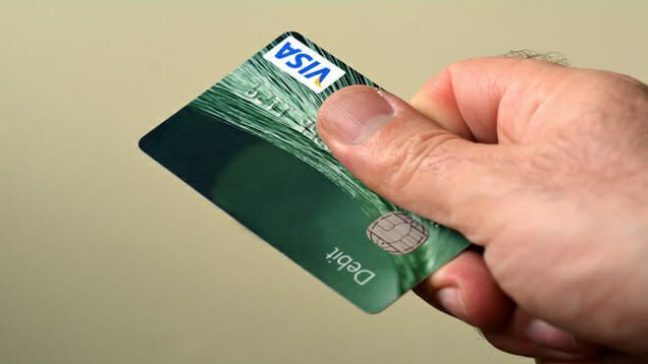It’s a hot-button question: If you’re in debt, do you get rid of all of your credit cards and stick to debit cards and cash only? Or can you discipline yourself and still use credit cards for routine purchases and pay the balance off in full every month?
When I was getting out of debt, I chose to continue using a credit card—actually a charge card—for monthly purchases, with a keen eye on making sure I paid it off each month. Others argue that total credit elimination is the only sure-fire way to rid yourself of debt. That leaves us with debit cards.
Although convenient, debit cards are not perfect. Here are a number of dangers you need to watch out for.
What’s Ahead:
1. Fraud protection
If your wallet falls into the wrong hands, your debit card’s fraud protection isn’t as strong as a credit card’s. With a credit card, your liability for fraudulent charges typically maxes out around $50. With a debit card, you may be responsible for up to $500 of charges you didn’t make. Plus, some banks will hold you 100 percent liable if your debit card is used fraudulently for pin-based transactions.
Finally, if a thief uses your credit card, you can withhold payment for the charges until your credit card investigates the suspected fraud. If a thief uses your debit card, however, they can drain your bank account in a matter of minutes, and you won’t get that money back until your bank investigates. So, keep track of your debit card and if you lose it—report it at once!
2. Building credit
If you don’t have a credit history yet or you are trying to rebuild your credit score, a debit card won’t help.
On the flip side, if you frequently forget to make credit card payments, sticking with a debit card may prevent you from doing further damage to an already weak credit report.
3. Merchant disputes
Let’s say you go to a fast-food restaurant and buy lunch with your debit card for $6.59. Problem is, the cashier is stoned and rings your card through for $6,590! You decline a receipt, so you never notice the mistake until you use your debit card again and it’s declined. You get home to check with your bank and see the problem. Obviously, the merchant will probably return your money (hopefully with a forceful apology), but returning your money to your account will take several days. In the meantime, you need to get your bank to reverse any overdraft fees.
If this same thing happened with a credit card, you wouldn’t owe the card company a penny until the problem was solved.
If there’s a dispute regarding a purchase you make, you’re in a weaker position when you use a debit card. The merchant already has your money when you pay with a debit card. So while the dispute is taking place, your money will remain with the merchant and you’ll only see that money again if you win the dispute.
4. Fees!
If you use a debit card for most of your purchases, you need to be extremely diligent about keeping track of your account balance. If you overcharge by a few dollars (or even a few hundred), your card may not be declined. The bank may allow your charge to go through, and then hit you for one or more overdraft fees of up to $34 a piece. These fees will quickly add up to more than a credit card would charge in interest if you revolved a small balance from one month to the next.
There are also spending limits on debit cards. There are spending limits on credit cards, but that’s you credit limit.
Hopefully, many banks will continue reducing these fees and/or allowing people to opt out of overdraft protection (so if you don’t have enough money in your account to make a purchase, your debit card will simply be declined). Embarrassing, yes, but far less costly.
5. Rewards and services
Many credit cards offer cash back or other rewards programs, as well as services like warranties on big purchases and rental car insurance. Most debit cards don’t have the same perks (although some debit cards with these perks are starting to appear).
I put this “debit card danger” last because I think it’s the least compelling reason to choose credit cards over debit cards. For most of us, the rewards we earn on our annual card purchases might add up to $100. If we carry a balance on a credit card, however, finance charges quickly eat up any rewards we might receive.
The smart way to use a debit card
Knowing these debit card dangers, you may still decide that avoiding credit cards altogether is the way to go. In that case, follow these simple rules to use your debit card securely.
- Treat your debit card like cash—always keep it secure—and if lost or stolen, report it immediately.
- Never, ever, write down or share your PIN
- Keep a cushion in your checking account of between $500 and $1,000
- Keep extra funds in a savings account—not the checking account linked to your card
- Or, get a credit card and use that card for almost everything you buy. Just pay it off religiously at the end of the month.
Summary
Credit cards, when used wisely, can be safer overall than debit cards. If you can teach yourself to use a credit card responsibly, and pay it off in full each month, you’ll be able to reap more rewards than if you stick with a debit card.

